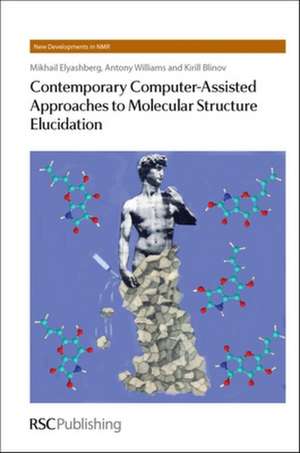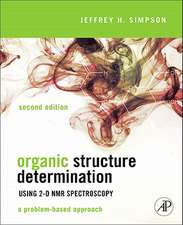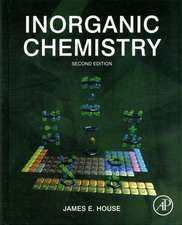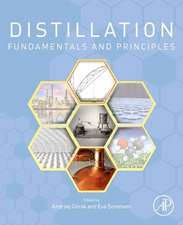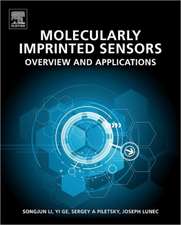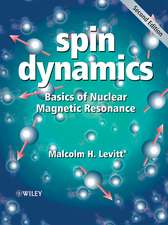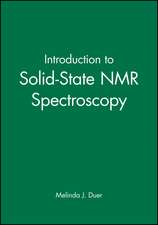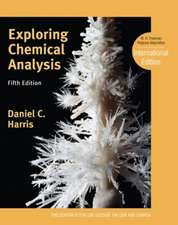Contemporary Computer-Assisted Approaches to Molecular Structure Elucidation: New Developments in NMR
Autor Mikhail Elyashberg, Antony Williams, Kirill Blinoven Limba Engleză Hardback – 31 oct 2011
Computer-Assisted Structure Elucidation (CASE) systems are a combination of software algorithms and tools to support and enable chemists and spectroscopists engaged in the process of molecular structure elucidation via the analysis of spectroscopic data. These expert systems dramatically reduce the time associated with structure elucidation and improve the reliability of the results. Contemporary Computer-Assisted Approaches to Molecular Structure Elucidation describes the principles on which these expert systems for spectroscopic structure elucidation are based and concisely explains the algorithmic concepts behind the programs. The authors use their own personal experiences in the development of the Structure Elucidator (StrucEluc) CASE software system to discuss the present state-of-the-art in computer-assisted structure elucidation. Scientists that are presently using CASE systems will be interested in the algorithms and modern approaches and for organizations that are currently using the StrucEluc platform the book is designed to help researchers understand the strategies behind CASE as well as details regarding the StrucEluc platform. For scientists that have never used CASE systems they will now have access to all necessary information to understand CASE systems for mastering this new and very effective approach to structure elucidation. The authors overall goal is writing this book is to produce the 'must read' definitive text that will represent the results of decades of work to develop computer-assisted structure elucidation software systems. CASE systems are now powerful software tools commonly outperforming and correcting human interpretations of data. This book will also provide an historical perspective of the work of the founding fathers of the technique and identify the challenges that have been overcome to produce modern CASE systems.
Din seria New Developments in NMR
- 14%
 Preț: 1306.05 lei
Preț: 1306.05 lei - 5%
 Preț: 1359.30 lei
Preț: 1359.30 lei - 14%
 Preț: 1386.51 lei
Preț: 1386.51 lei - 9%
 Preț: 1170.73 lei
Preț: 1170.73 lei - 14%
 Preț: 1389.40 lei
Preț: 1389.40 lei - 14%
 Preț: 1237.57 lei
Preț: 1237.57 lei - 14%
 Preț: 1555.76 lei
Preț: 1555.76 lei - 14%
 Preț: 1365.90 lei
Preț: 1365.90 lei - 14%
 Preț: 1381.12 lei
Preț: 1381.12 lei - 14%
 Preț: 1381.12 lei
Preț: 1381.12 lei - 14%
 Preț: 1249.68 lei
Preț: 1249.68 lei - 14%
 Preț: 1386.51 lei
Preț: 1386.51 lei - 14%
 Preț: 1394.79 lei
Preț: 1394.79 lei - 9%
 Preț: 1170.29 lei
Preț: 1170.29 lei - 9%
 Preț: 1031.38 lei
Preț: 1031.38 lei - 9%
 Preț: 1102.91 lei
Preț: 1102.91 lei - 9%
 Preț: 1101.28 lei
Preț: 1101.28 lei - 9%
 Preț: 1241.91 lei
Preț: 1241.91 lei - 5%
 Preț: 1151.98 lei
Preț: 1151.98 lei - 9%
 Preț: 1240.83 lei
Preț: 1240.83 lei - 9%
 Preț: 1101.28 lei
Preț: 1101.28 lei - 5%
 Preț: 1295.37 lei
Preț: 1295.37 lei - 9%
 Preț: 1379.30 lei
Preț: 1379.30 lei - 9%
 Preț: 1171.16 lei
Preț: 1171.16 lei - 9%
 Preț: 1241.70 lei
Preț: 1241.70 lei - 9%
 Preț: 1101.28 lei
Preț: 1101.28 lei - 5%
 Preț: 1295.15 lei
Preț: 1295.15 lei - 9%
 Preț: 1033.57 lei
Preț: 1033.57 lei
Preț: 1147.27 lei
Preț vechi: 1334.04 lei
-14% Nou
Puncte Express: 1721
Preț estimativ în valută:
219.52€ • 229.20$ • 181.69£
219.52€ • 229.20$ • 181.69£
Carte disponibilă
Livrare economică 14-28 martie
Preluare comenzi: 021 569.72.76
Specificații
ISBN-13: 9781849734325
ISBN-10: 1849734321
Pagini: 482
Dimensiuni: 162 x 241 x 34 mm
Greutate: 0.87 kg
Editura: RSC Publishing
Seria New Developments in NMR
ISBN-10: 1849734321
Pagini: 482
Dimensiuni: 162 x 241 x 34 mm
Greutate: 0.87 kg
Editura: RSC Publishing
Seria New Developments in NMR
Cuprins
Foreword; Introduction;An Introduction to general CASE Principles; Axiomatic Approaches to Structure Elucidation; NMR Spectrum Prediction and Structure Confirmation; Knowledge bases and their application to CASE; Data processing, preparation and input; Generating Molecular Connectivities from Spectral Data; Approaches to Algorithmic Structure Generation; The Challenges of Non-Standard Spectral Responses; Algorithmic Determination of Relative Stereochemistry; Applications of CASE to real world examples; Applications of CASE systems to structure revision - algorithms and humans, the need for synergistic collaboration; An Evaluation of the performance of modern CASE systems - Structure Elucidator; Comparisons of Systematic CASE Systems Versus Traditional Approaches; A Vision of the Future of CASE Systems; Conclusions
Notă biografică
Professor Mikhail E. Elyashberg graduated from the Faculty of Physics at the University of Tomsk, Russia. He obtained a PhD from the Moscow Pedagogical University and Dr. Chem. Sci from the Institute of Geochemistry and Analytical Chemistry at the Russian Academy of Sciences (GEOKHI RAS). He headed the Laboratory of Molecular Spectroscopy at the All-Russian Institute for Organic Synthesis in Moscow (1981-2001). Since 1995, has been the leading researcher at GEOKHI RAS and in 2001, he became Senior Scientist at Advanced Chemistry Development Ltd. (ACD) in Moscow. Professor Elyashberg is a Laureate of the State Prize of the Russian Federation, the highest scientific award in Russia. Antony J. Williams graduated with a BSc and PhD in chemistry from the University of Liverpool and University of London respectively. He subsequently became a Post-doctoral Fellow at the National Research Council in Ottawa and then an NMR Facility Director at the University of Ottawa. He has also worked as an NMR Technology Leader at Eastman-Kodak in Rochester and held a number of positions, including Chief Science Officer, at ACD/Labs. In 2007, he established ChemZoo, Inc and became host of ChemSpider, one of the primary internet portals for chemistry. ChemSpider was acquired by the Royal Society of Chemistry (RSC) in 2009 and Dr. Williams is currently Vice-President of Strategic Development at the RSC. Kirill A. Blinov received his MSc in Chemistry from Moscow State University. He started working on Computer-Assisted Structure Elucidation (CASE) systems in 1996 and is currently a senior scientist at Advanced Chemistry Development Inc. He is the primary architect of the ACD/Structure Elucidator software program and co-inventor of the indirect covariance processing algorithms used for the processing of 2D NMR spectroscopy data.
Textul de pe ultima copertă
Computer-Assisted Structure Elucidation (CASE) systems are a combination of software algorithms and tools to support and enable chemists and spectroscopists engaged in the process of molecular structure elucidation via the analysis of spectroscopic data. These expert systems dramatically reduce the time associated with structure elucidation and improve the reliability of the results. Contemporary Computer-Assisted Approaches to Molecular Structure Elucidation describes the principles on which these expert systems for spectroscopic structure elucidation are based and concisely explains the algorithmic concepts behind the programs. The authors use their own personal experiences in the development of the Structure Elucidator (StrucEluc) CASE software system to discuss the present state-of-the-art in computer-assisted structure elucidation. Scientists that are presently using CASE systems will be interested in the algorithms and modern approaches and for organizations that are currently using the StrucEluc platform the book is designed to help researchers understand the strategies behind CASE as well as details regarding the StrucEluc platform. For scientists that have never used CASE systems they will now have access to all necessary information to understand CASE systems for mastering this new and very effective approach to structure elucidation. The authors overall goal is writing this book is to produce the 'must read' definitive text that will represent the results of decades of work to develop computer-assisted structure elucidation software systems. CASE systems are now powerful software tools commonly outperforming and correcting human interpretations of data.
Descriere
This book describes the principles on which CASE systems are based and concisely explains the algorithmic concepts behind the programs. It puts the technique in the context of its origins and describes the challenges that have been overcome to produce modern CASE systems.
